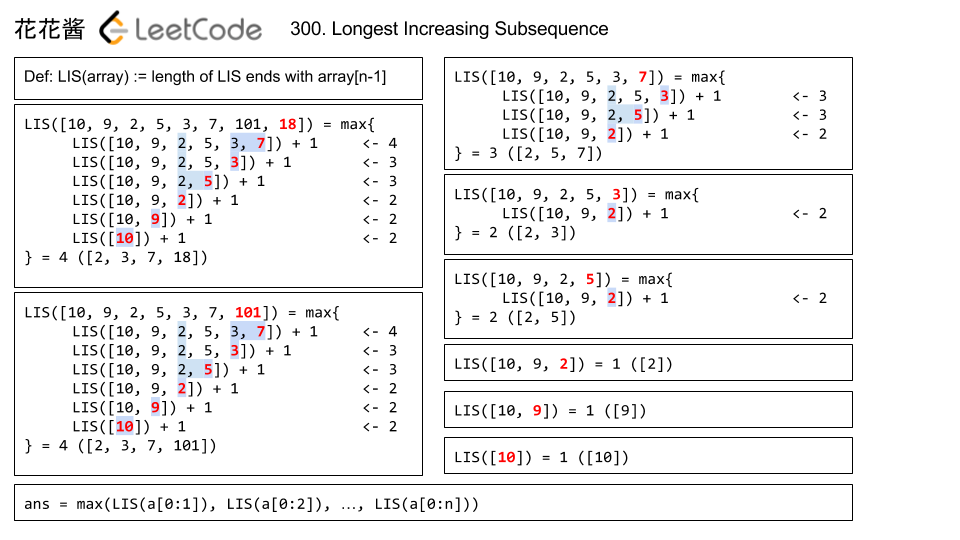Question
Given an unsorted array of integers, find the length of longest increasing subsequence.
Example:
Input:
[10,9,2,5,3,7,101,18]Output: 4 Explanation: The longest increasing subsequence is[2,3,7,101], therefore the length is4.
Note:
- There may be more than one LIS combination, it is only necessary for you to return the length.
- Your algorithm should run in O(n2) complexity.
Follow up: Could you improve it to O(n log n) time complexity?
Difficulty:Medium
Category:Dynamic-Programming, Binary-Search
Analyze
Solution
Solution 1: DP
解题思路来源于博客:花花酱 LeetCode 300. Longest Increasing Subsequence
具有的特性:

解决方案的流程示意图:

// Runtimes: 32ms
class Solution {
public:
int lengthOfLIS(vector<int>& nums) {
if (nums.empty()) return 0;
int n = nums.size();
vector<int> f(n, 1);
// f[i] 表示前面的元素可以组合得到的最长的元素之和
for (int i = 1; i < n; ++i)
for (int j = 0; j < i; ++j)
if (nums[i] > nums[j]) f[i] = max(f[i], f[j] + 1);
return *std::max_element(f.begin(), f.end());
}
};
Solution 2: 递归方案
解题思路:

class Solution {
public:
int lengthOfLIS(vector<int>& nums) {
if (nums.empty()) return 0;
const int n = nums.size();
f_ = vector<int>(n, 0);
int ans = 0;
for (int i = 0; i < n; ++i) {
ans = max(ans, LIS(nums, i));
}
return ans;
}
private:
vector<int> f_;
int LIS(const vector<int>& nums, int r) {
if (r == 0) return 1;
if (f_[r] > 0) return f_[r];
int ans = 1;
for (int i = 0; i < r; ++i) {
if (nums[r] > nums[i]) {
ans = max(ans, LIS(nums, i) + 1);
}
}
f_[r] = ans;
return f_[r];
}
};